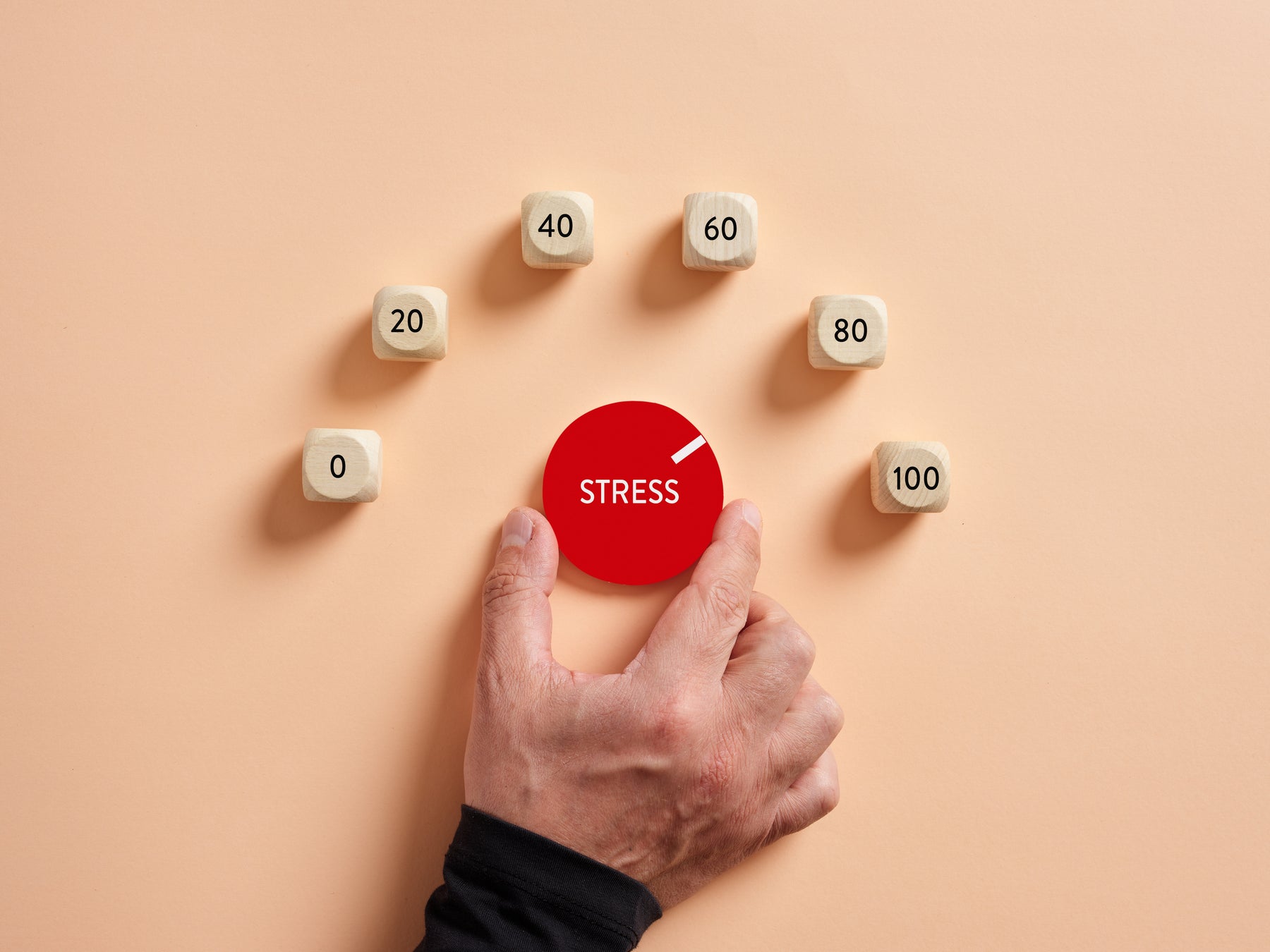
What Can Stress Do to Your Body?
Have you ever felt your heart pounding during a tense meeting, or noticed your palms getting sweaty when faced with a daunting task? These are common signs of stress, a natural response our body gives when faced with challenging situations. Think of it as your body's way of saying, "I'm in overdrive, and I need a break."
Everyone experiences stress to some extent, but when it gets too much, it can have serious impacts on our health. From physical symptoms like headaches and high blood pressure, to emotional and psychological effects like mood swings and depression, chronic stress is nothing to ignore. In honour of Stress Awareness Month, let's dive into the intricate ways in which stress affects our body and explore how you can better manage it.
Understanding Stress
Stress, as we experience it, is rooted deep in our physiology. When we encounter a stressful situation, our body springs into action, relying on an intricate network of biological mechanisms to help us respond effectively.
At the heart of your body's stress response are your adrenal glands. These small but mighty organs sit atop your kidneys and are tasked with producing key hormones, such as cortisol and adrenaline, in response to stressful situations.
Cortisol, often referred to as the primary 'stress hormone', plays a crucial role. It helps regulate a whole host of bodily functions, including your immune response and metabolism. Under stress, cortisol production surges, preparing your body to either 'fight' or 'flee' the stressful situation. It does this by increasing your heart rate, blood pressure and energy supplies.
Adrenaline also plays a key role, working hand-in-hand with cortisol. This hormone speeds up your heart rate and breathing, preparing your muscles for exertion. The end result is a primed and ready body, fully equipped to deal with the immediate challenge at hand.
However, not all stress is created equal. Acute stress is a transient, short-term experience, often linked to a specific event or situation. Feeling jittery before a job interview or big presentation? That’s acute stress. Your body’s response, while intense, tends to dissipate once the triggering situation has passed.
Chronic stress, on the other hand, is persistent and prolonged. It's the stress that keeps gnawing at you, day in and day out, for weeks, months, or even years on end. This type of stress can be particularly harmful. Chronic exposure to stress hormones can lead to a range of health problems, including heart disease, digestive issues, sleep disturbances and even mental health problems.

What Can Stress Do to You?
Chronic stress can lead to significant health complications including heart disease, hypertension, and even the terrifying risks of heart attack and stroke. This is because persistent stress hormones like cortisol and adrenaline can raise your heart rate, blood pressure and blood sugar levels. Your heart, quite literally, bears the brunt of your stress.
Beyond the heart, stress also takes its toll on your digestive system. It can lead to an array of unpleasant symptoms like acid reflux, stomach cramps, bloating, and even ulcers. This happens because stress affects your body's ability to process food and absorb nutrients effectively. And to make matters worse, chronic stress can also influence your eating habits. Some may binge-eat under stress, leading to weight gain and further digestive problems.
Even your defence against illnesses, the immune system, is not immune to the impact of stress. Stress sends your body into fight-or-flight mode, releasing a flood of hormones and altering your immune system response. The result? Your body's capability to fight off antigens is reduced, leading to an increased susceptibility to infections and diseases. In fact, prolonged stress can even rewire your immune system, making you more prone to develop autoimmune diseases and allergies.

The impact of stress goes beyond the physical. Stress affects our moods in profound ways that can lead to anxiety. Anxiety is not just about feeling anxious—it's a serious condition that can lead to intense fear or worry that isn't proportional to the situation at hand. Chronic stress continually fuels these feelings, making them more frequent and more intense. Over time, this constant state of heightened alert can evolve into an anxiety disorder, a condition that hampers one's ability to lead a normal life.
When the fog of stress hangs over us for too long, it also leads to a landslide of negative feelings. This can culminate in depression, an overwhelming feeling of sadness, hopelessness, and disinterest that doesn't go away easily. People with chronic stress are more likely to experience depressive episodes, demonstrating the intimate link between ongoing stress and the onset of depression.
How to Tackle Stress
The importance of recognising stress is only overshadowed by your ability to manage it effectively. Instead of having stress take control your life, empower yourself with these simple stress management strategies.
Embrace Mindfulness
Mindfulness equips you with the ability to live in the present moment, shedding away non-useful worries about the past or the future. It encourages you to focus on current experiences without judgement. Your mind gains freedom, promoting emotional well-being and reducing stress.
One way to cultivate mindfulness is through meditation and deep-breathing exercises. Start by finding a quiet and comfortable place to sit in a relaxed position. Close your eyes and focus on your breath, taking deep breaths in through your nose and out through your mouth. As you breathe, try to clear your mind and focus solely on the sensation of the air moving in and out of your body. Don't be discouraged if your mind wanders at first - it's natural and a skill that improves with practice. With consistent practice, you can develop the ability to live in the present moment and embrace mindfulness in your daily life.

Get Active
Never underestimate the potent stress-soothing abilities of physical exercise. Engaging in routine physical activities boosts your mood and encourages your body to release endorphins, commonly known as 'feel-good' hormones. This effect can significantly reduce stress while enhancing your overall well-being. Activities like walking, jogging, yoga or even dancing can prove beneficial.
Reach For Ashwagandha
Ashwagandha strengthens your body's response and resilience to the stressors in your life, essentially acting as an adaptogen. Scientists and researchers believe that it helps dial down the stress by moderating the production and impact of cortisol, your body's main stress hormone.
We all know that excess stress not only affects our mental health but also results in physical symptoms like fatigue. And that's where Ashwagandha comes in with a double whammy. Not only can it potentially mellow down your anxiety but also drive away that feeling of constant tiredness that comes with it.

However, while absolutely wonderful, Ashwagandha isn't a magic cure-all. It's an effective tool in your stress management kit, but it's most effective when used in combination with other strategies. Remember, stress management isn't a one-size-fits-all solution. What works for you may not work for someone else. So experiment, listen to your body, and find what brings you the peace you deserve in this fast-paced, stress-filled world.
Maintain a Balanced Diet
Your eating patterns directly correlate to how your body responds to stress. A balanced diet, rich in fruits, vegetables, lean protein, and whole grains, can effectively boost your immune system and stabilise your blood sugar levels, helping you deal with stress better. Try to restrict your intake of processed foods, excessive caffeine, and alcohol as they can exacerbate stress levels.
Don't Forget Your Omega-3 Fatty Acids
Omega-3 fatty acids, specifically types known as EPA (eicosapentaenoic acid) and DHA (docosahexaenoic acid), play a rather crucial role in combating stress. Though Omega-3s are commonly associated with heart health, they extend far beyond that, offering significant benefits for your stress response system as well.
First, let's delve a little deeper into how Omega-3s work in the body. EPA and DHA are long-chain Omega-3 fats that you'll find plentifully in fatty fish, chia seeds, and flax seeds. These nutrients are key actors in your body's inflammatory response, which gets kicked into high gear during periods of stress. They contribute to the creation of molecules called 'resolvins' and 'proteins,' which aid in resolving inflammation and protecting your brain during stressful periods.
Not only so, but Omega-3 fatty acids can mitigate your body's stress response. They help maintain balance in your body's production of cortisol. Heightened levels of cortisol over a prolonged period can lead to a host of health issues like anxiety, depression, heart disease, weight gain, and more. Research has consistently shown that complementing your diet with Omega-3-rich foods or supplements can effectively lower cortisol levels, helping you manage your stress more efficiently.
If your palate doesn't take kindly to oily fish, flaxseeds, or chia seeds, do not fret. Omega-3 supplements are a readily available alternative that can be easily incorporated into your dietary routine. Just remember, as with any supplement, it's important to look for products that bear a quality certification mark, to ensure you're getting a supplement that is safe and contains the ingredients it claims.

Getting Professional Help
While these self-management tools can help deal with everyday stress, professional help can be invaluable when stress becomes overwhelming or persistent. Therapists and counsellors can guide you through effective coping strategies, and provide the emotional support you need during tough times. Never hesitate to reach out for help when you need it.
Remember, stress is a common aspect of life, but it doesn't have to rule you. By trying these stress management strategies, you can enhance your ability to handle stress and enjoy a healthier, happier life.

Riya Lakhani-Kanji MSc ANutr is a registered nutritionist and health writer. Equipped with a Bachelor's and Master's degree in Human Nutrition, Riya leverages her scientific knowledge to create engaging content that empowers people to embrace the power of plants.





